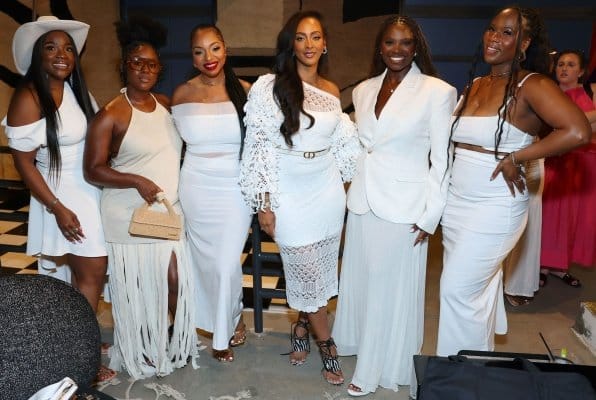Every December in Nigeria and Ghana a giant party takes place, unfolding in a whirlwind of concerts, festivals, weddings, art shows, dress-ups, meet-ups and travel. Locals and diaspora west Africans returning from overseas come together to create Detty December, a festive event stretching from mid-December to the new year.
Detty is a playful term for “dirty” in the regional Pidgin language and “Detty December” is a term commonly believed to have been coined by Afropop star Mr Eazi in 2016. It means letting loose and indulging in some fun and revelry.
Major events headlined by local and international music stars punctuate Detty December. In Nigeria events range from Flytime Fest in Lagos to Carnival Calabar, which showcases cultural heritage. In Ghana, festivals like AfroFuture and Afro Nation attract global celebrities and influencers as well as returning citizens.
But this isn’t just a holiday fling. Propelled by youthful energy and cultural innovation, it’s an economic phenomenon. And it represents a shift in Africa’s urban landscape and its relationship with the rest of the world.
Detty December now stands as a pillar of Africa’s creative economy, which has built on the global popularity of music from the continent, from Afrobeats to amapiano.
As marketing and entrepreneurship lecturers with an eye on the creative industries, we’ve researched Detty December and believe it’s a cultural tourism phenomenon with the potential to spread across the continent. In fact, it’s already begun to do so.
Nigeria: the economic power of Detty December
Despite infrastructure challenges, places like Lagos are new cultural epicentres. During Detty December the city becomes a carnival of reunions and celebrations. “I Just Got Backs” (IJGBs) return, music spills from every bar and events pop up daily.
Once simply a cultural moment, Detty December has rapidly become a powerful economic engine. It makes a big impact on hospitality, entertainment, tourism and local businesses.
In Lagos alone, the 2024 festivities generated an estimated US$71.6 million in state revenue. Hotels contributed US$44 million and short-term rentals added US$30 million.
Nationally, the impact is even more staggering. Detty December injected over US$220 million into Nigeria’s economy in 2023.
A major driver of this growth is tourism. An estimated 1.2 million visitors flocked to Lagos in December 2024. Nearly 90% of these were diaspora Nigerians.
Afrobeats star Wizkid’s Made in Lagos concert alone pulled in nearly US$650,000 in ticket sales. New song releases on Fridays have become features of the season.
Beyond direct spending, Detty December creates temporary and permanent jobs and bolsters small businesses.
Ghana: December in GH
The government of neighbouring Ghana has recognised this potential, strategically branding its festive season December in GH. This initiative leverages cultural tourism for substantial economic gain. The country even takes measures like visa-on-arrival in December to encourage visitors.
This builds on cultural tourism successes like the 2019 Year of Return campaign. In 2023, December in GH reportedly attracted about 115,000 participants.
Even in a challenging economic climate, Detty December continues to thrive. This indicates a desire for cultural connection and a much-needed escape, especially among the continent’s youth and its global diaspora communities.
South Africa: Ke Dezemba
From Flytime in Lagos and AfroNation in Accra to Alte Sounds in Kigali and the vibrant December nightlife in Mombasa or Johannesburg’s rooftop party events, African cities have become seasonal epicentres for cultural consumption.
“Ke Dezemba” is a term used in South Africa to describe the festive season. It’s a vibrant and celebratory term that’s often associated with summer holidays, braaiing (barbecuing) and social gatherings. It could become the branding of the country’s own Detty December.
South Africa’s global profile has been raised during its 2025 presidency of the G20. Adopting its own version of Detty December could continue to amplify Brand South Africa. It could show off the country’s vibrancy, creativity, hospitality and potential for investment.
Aligning cultural celebration with global visibility could reframe a season of revelry into a strategic cultural and economic asset. For South Africa, this could inject capital into the tourism sector, boosting hospitality, transport and ancillary services.
Read more:
Culture can build a better world: four key issues on Africa’s G20 agenda
Beyond direct tourism, the spotlight on South African art and culture during this period could make a lasting impact on the creative economy, fostering growth and job creation.
Physical celebration could be digitally amplified to make a lasting impression.
A notable example is Spotify’s unveiling of its Detty December hub. The music streaming service intends celebrating the festive season across west Africa and South Africa with playlists of party tracks.
Spotify’s Phiona Okumu explains:
Detty December is a special time for our users in west Africa, and Ke Dezemba symbolises South Africa’s spirit of celebration.
How to make it work
The lessons from west African cities suggest that cultural economies thrive with:
-
flexible governance
-
inclusive participation
-
engaged diasporas
-
innovative business models.
For Nigeria’s Detty December model to be sustainable it would require strategic policy support, urban planning integration and investment in creative infrastructure.

Fquasie/Wikimedia Commons, CC BY-SA
Funding models such as memberships and sponsorships are crucial for the longevity of music festivals. Policy support and infrastructure investment are necessary to unlock the full potential of the creative sector.
Cultural tourism, powerfully embodied by Detty December, is emerging as a viable economic strategy for African cities. This signals a broader recognition of culture’s economic power. It offers a compelling canvas for economic development and nation branding.

